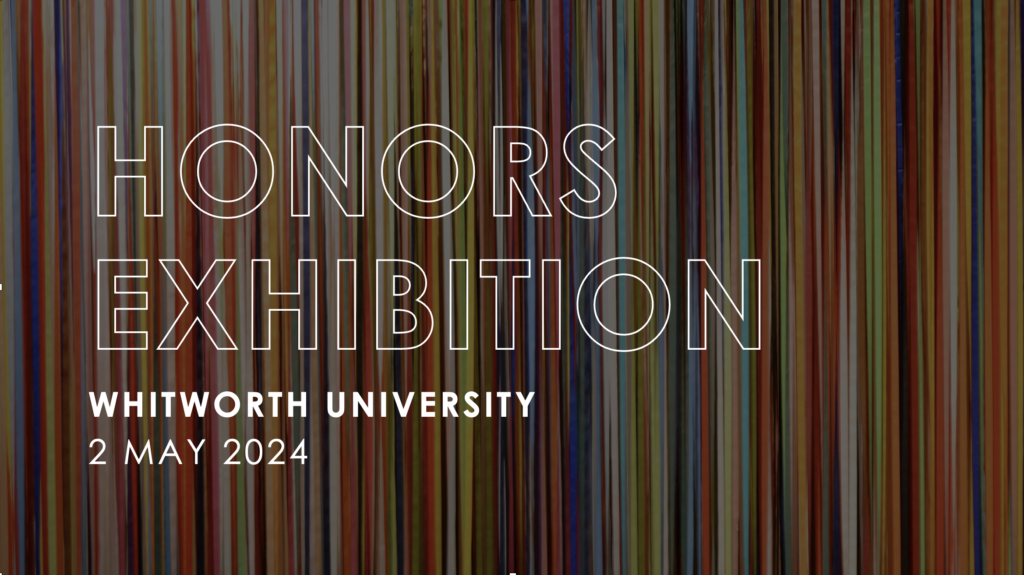
Class of 2024. Theology Major, English Minor. Next stop: attending Western Theological Seminary in Holland, MI next fall to pursue an M.Div. and conduct research for Dr. Han-Luen Kantzer Komline, an Augustinian scholar. From there Michael aims to get a Ph.D. in Early Church History and become a professor.

This project is a series of papers on different aspects of what it means to create through a Christian lens. The first is a paper on St. Basil and his definition of what it means to be in the Image of God, in short, to participate in our own creation by becoming more like God. The second is a paper that explores J.R.R. Tolkien and his idea of sub-creation, that humans are called to create in a manner like God and that their creating can have an effect on the world around them. The third is an analysis of the short story “Tlon, Uqbar, Orbis Tertius” by Jorge Luis Borges, in this story the power of humans to create is used in both negative and positive ways. These papers, together with further research, will culminate into a larger project, perhaps a book, on a theology of creativity.
Created Creators: St. Basil on Becoming Like God
In On the Human Condition St. Basil argues that there is a distinction between humans being made in the “image” and in the “likeness” of God. The image is our capacity for reason and our ability to rule over other creatures. The likeness is our ability to become more like God; however, he does not explicitly describe what it is to become more like God, except to say that it comes about through Christianity. Through his homilies on creation in the Hexameron he argues for the work of the Holy Spirit in the act of creation. And again in On the Holy Spirit he defends the Holy Spirit as an agent of creation, and further as an agent of our salvation, through our baptism. In this paper I argue that while St. Basil does not clearly define what it means to be like God in On the Human Condition, his writing in the Hexameron and On the Holy Spirit do work to further define what it means to be like God. The act of creation is shown to be an essential aspect of God, as such to become like God is to be a creature that creates.
The Old Man and the Doorway: The Power of Stories Against Invasive Ideologies
In Borges’s Tlon, Uqbar, Orbis Tertius, the narrator faces a world where reality has succumbed to a false created ideology referred to as the world of Tlon. Faced with this overwhelming force, Borges (a self-insert narrator) turns to translating Sir Thomas Brown’s Urne Buriall, a literary meditation on mortality and how cultures have death with death. Critics have often seen this ending as an escape from reality, and have called this story one of Borges’s most hopeless. However, Borges finds small footholds of hope throughout the story. Most of this hope is found in his subverting the Tlonian philosophy and using it against itself. This paper argues that Borges uses the Tlonian philosophy to maintain some small grip on reality, by doing so he is able to save it from being completely overcome by Tlon.
Theosis Through Fantasy: How Tolkien’s Sub-Creative Theology Makes Us More Like God
In his poem Mythopoeia Tolkien argues that myths are a good thing because they are a gift of God, that men create myths because they were created by a creative God, they can “sub-create. This theme also appears in the Silmarillion where each type of being that is created by Ilvuatar is able to create to different extents. The higher created beings do not do everything for the other races, but rather each must learn how to use their power to create for themselves. This paper traces those different forms of creation and learning and compares them to the Eastern Christian theology of Theosis, or becoming like God; it argues that the act of sub-creation is an act of becoming like God.

We use cookies to improve your experience on our site. By using our site, you consent to cookies.
Websites store cookies to enhance functionality and personalise your experience. You can manage your preferences, but blocking some cookies may impact site performance and services.
Essential cookies enable basic functions and are necessary for the proper function of the website.
These cookies are needed for adding comments on this website.
Statistics cookies collect information anonymously. This information helps us understand how visitors use our website.
Google Analytics is a powerful tool that tracks and analyzes website traffic for informed marketing decisions.
Service URL: policies.google.com (opens in a new window)
Marketing cookies are used to follow visitors to websites. The intention is to show ads that are relevant and engaging to the individual user.